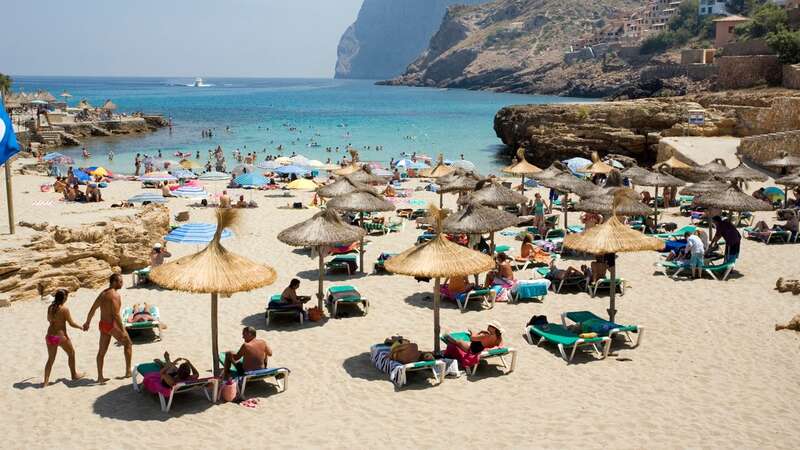
Spanish locals are erecting fake signs all over beaches in Mallorca in a bid to keep the pristine sands free of tourists.
In a war on tourists, the locals have been posting the signs warning of jellyfish and falling rocks at popular beatuy spots on the popular Balearic island.
The community has formed its own activist group, known as the "caterva" which is taking a stand against tourists who they believe are damaging the environment. They have taken to writing out signs in English warning of deadly jellyfish and falling rocks, or even warning visitors that swimming is not allowed.
However, beneath the signs, another note - translated into Catalan - details how the problem isn't the potential risks, but the influx of mass tourism. Barbs included "the problem isn’t rockfall, it’s mass tourism" as well as statements in Catalan saying the beach is "open, except for foreigners and jellyfish", according to Forbes magazine.
Millions of tourists descend on Mallorca each year, with more than two million hailing from the UK and 3.9 million from Germany in 2022, according to Statista. Another 1.8million visitors to the island were from Spain, of which Mallorca is a part, in the same year, reports The Express.
 Lucas Perez pays part of own transfer fee to rejoin beloved Deportivo
Lucas Perez pays part of own transfer fee to rejoin beloved Deportivo
Projections for 2023 suggested tourist numbers could have been even higher than the 16million seen in 2022. Officials on the island introduced a number of measures to address concerns over tourism, including some targeting rowdy behaviour, but Caterva activists felt forced to take matters into their own hands.
Limits on alcohol and bans on smoking on beaches have been brought in by island authorities, but Caterva's campaign reignited debate over mass tourism and its impacts. Mallorca is not the only popular holiday destination to take steps to address concerns about tourist numbers. Venice is piloting a £4.35 (five euro) "tourist tax" where day trippers having to pay to enter the old city area, but not smaller islands in the region. People who are staying in Venice for a night or more won't have to pay the fee, which is being trialled at peak visitor periods. Amsterdam, Lanzarote, Bali, Barcelona and Santorini also have plans to tackle excessive tourist numbers.
Read more similar news:
Comments:
comments powered by Disqus
































